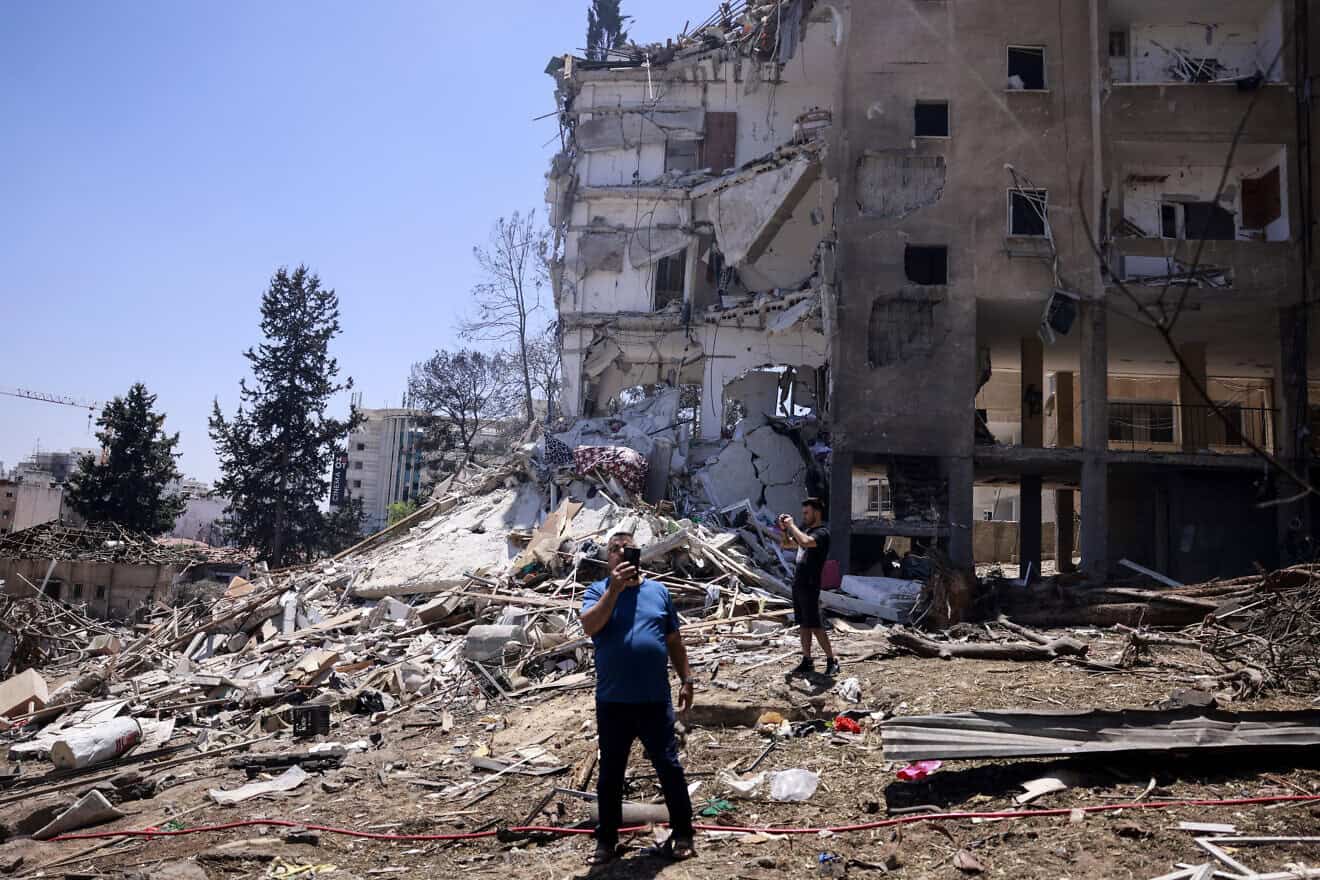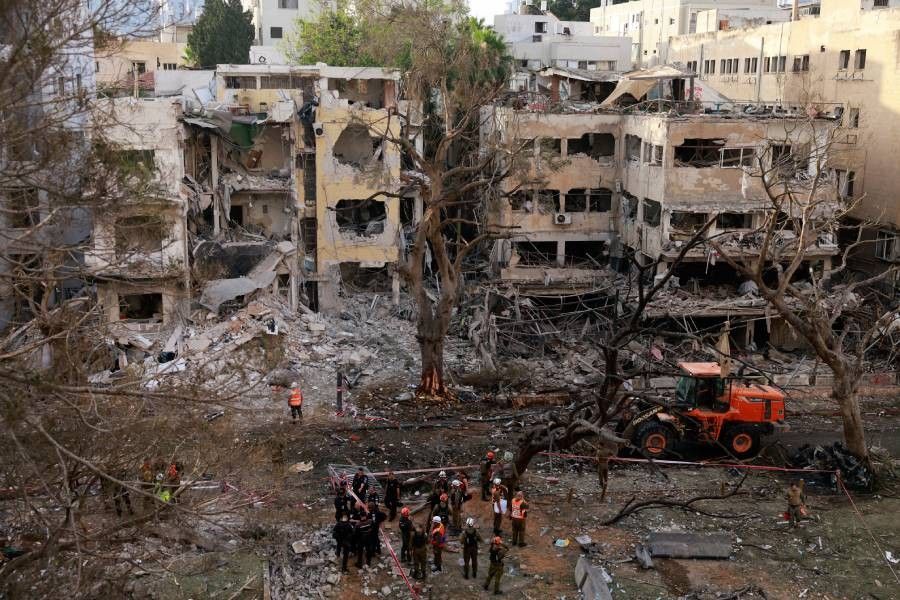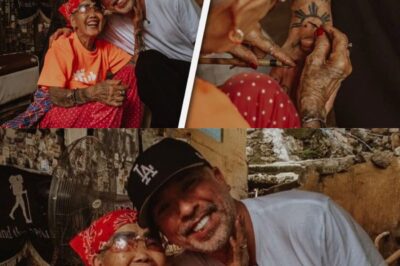A devastating chapter has unfolded in the ongoing Israel-Iran conflict, as the first confirmed Filipino fatality has been reported. Behind the headlines and geopolitical tension lies a deeply human tragedy — one that deserves more than a passing mention in the news. Her name is Leah Mosquera, and her story may change the way we see the sacrifices made by overseas Filipino workers across the globe.
According to the Philippine Embassy in Israel, Leah Mosquera, a 49-year-old overseas worker, succumbed to severe injuries caused by an Iranian missile strike that hit her apartment in Rehovot, Israel on June 15, 2025. After weeks in critical condition and multiple surgeries at the Shamir Medical Center, she passed away on the morning of July 13 (Manila time).
This tragic incident places Leah in the grim history books as the first Filipino fatality in the Israel-Iran conflict — a conflict that escalated dramatically after Israel launched preemptive airstrikes on Iran’s nuclear and military sites on June 13.
But who was Leah Mosquera, really? And why should her death matter to all of us?

The Woman Behind the Tragedy: Leah Mosquera’s Life, Sacrifice, and Legacy
Leah Mosquera was more than just a statistic in a global conflict. She was a daughter, a sister, a devoted family provider, and one of the many Filipino migrant workers who quietly keep their families afloat from afar. She had spent years working in Israel, dedicating her life to the wellbeing of her loved ones back in the Philippines.
Her story echoes that of millions of overseas Filipino workers (OFWs) who leave their homeland in search of better opportunities. For Leah, this meant taking on the responsibilities of caring for others in a foreign land, enduring long hours, and facing uncertainty — all while staying far from the people she loved.
On that fateful day, Leah’s apartment was directly hit during an Iranian retaliatory missile barrage targeting Israeli cities. She was one of the many civilian casualties of a conflict that continues to draw innocent lives into its vortex.
Her death, confirmed by her sister Joy, prompted an outpouring of grief and tributes, both online and from the Filipino community in Israel and beyond.

The Israel-Iran Conflict: How a Global Power Struggle Claimed a Filipino Life
The Israel-Iran conflict reached a boiling point in June 2025 when Israel executed a surprise military operation aimed at halting Iran’s alleged nuclear weapons development. The operation targeted multiple sites, including missile production centers, nuclear research facilities, and military leadership compounds.
In response, Iran launched a massive missile counterattack on June 15, striking several cities across Israel. It was during this assault that Leah’s apartment in Rehovot was hit, resulting in her critical injuries.
The Philippine Embassy in Israel stated that they are coordinating the repatriation of her remains and are extending full assistance to her grieving family. In a heartfelt statement, the Embassy described Leah as a symbol of courage and sacrifice, emphasizing her commitment to her family and the nation.
Why Leah Mosquera’s Death Matters More Than You Think
The death of Leah Mosquera is not just another tragic update in the timeline of the Israel-Iran conflict. It is a reminder of how deeply global crises affect individuals far beyond the battlefield. It forces us to ask difficult, uncomfortable questions:
How many more Filipino workers are currently in harm’s way in conflict zones?
Are enough measures in place to protect OFWs from geopolitical fallout?
What responsibilities do host and home countries have in ensuring their safety?
The story of Leah Mosquera underscores a broader reality: OFWs are often the silent casualties of international conflict. While governments debate policies and military strategies, people like Leah live — and die — on the frontlines of uncertainty.
The Global Response and the Call for Action
The news of Leah’s death has sent shockwaves through the Filipino diaspora. Tributes have poured in on social media, with many calling her a hero who should not be forgotten. Advocacy groups and community leaders are now urging the Philippine government to reassess its protocols regarding OFWs stationed in high-risk areas.
Several organizations have called for better coordination between embassies and host nations to ensure timely evacuations and risk assessments. Others have demanded increased support services for the families of OFWs affected by war and disaster.
The Filipino fatality in the Israel-Iran conflict has reignited discussions about the vulnerability of migrant workers and the long-overdue need for stronger protections.
A Hero Remembered: More Than a Name, More Than a News Headline

In the chaos of war, it’s easy to overlook the human cost — to reduce tragedies to numbers. But Leah Mosquera was not just a casualty. She was a woman with dreams, responsibilities, and a family who now mourns her loss from thousands of miles away.
Her death reminds us that the impact of war travels far beyond borders. It reminds us that Filipino lives — and the lives of all migrant workers — are not expendable.
She lived for her family. She died in service. And now, it’s up to us to remember her not as a victim, but as a woman of strength, dignity, and sacrifice.
What Happens Now?
The Philippine government continues to coordinate with Israeli authorities for the safe return of Leah’s remains, while also pledging support to her family. The Department of Foreign Affairs is expected to conduct an internal review of its crisis response mechanisms in conflict zones.
Meanwhile, Filipino workers in Israel are being urged to register with the embassy for faster communication in emergencies. The embassy has set up hotlines and is conducting outreach programs to monitor the wellbeing of the Filipino community in affected areas.
News
Secret No More: Gerald Anderson and Gigi De Lana’s Private Wedding in Batangas Breaks the Internet – Here’s What You Missed!
Did Gerald Anderson and Gigi De Lana just get married in secret? Yes — and the internet can’t keep calm….
“She Was Gone for Minutes”: Mona Alawi Found Unconscious, Ivana Alawi in Tears – What Really Happened?
In a moment that shocked fans across the globe, Mona Alawi, the beloved younger sister of actress and YouTube star…
Hanggang sa Muli, Mahal Kita’: Why Rufa Mae Quinto’s Heartbreaking Farewell to Her Husband Is the Story You Can’t Ignore
Filipino actress and comedienne Rufa Mae Quinto is grieving the unexpected passing of her estranged husband, Trevor Magallanes, and the…
Jo Koy Blessed by Tattoo Legend Whang-Od: The Viral Moment Everyone’s Talking About!
Why did Jo Koy travel all the way to the remote mountains of Kalinga? What really happened during his visit…
Caught Red-Handed: Congressman Busted Watching E-Sabong During House Session – Tulfo Weighs In!
In a moment that sent shockwaves through the online community and the halls of Philippine politics, a congressman was caught…
Claudia Barretto Breaks Silence: The Real Reason Behind Julia and Gerald’s Breakup – You Won’t Believe What She Revealed!
When celebrity couples part ways, the public is often left in the dark—guessing, speculating, and waiting for answers. But not…
End of content
No more pages to load













